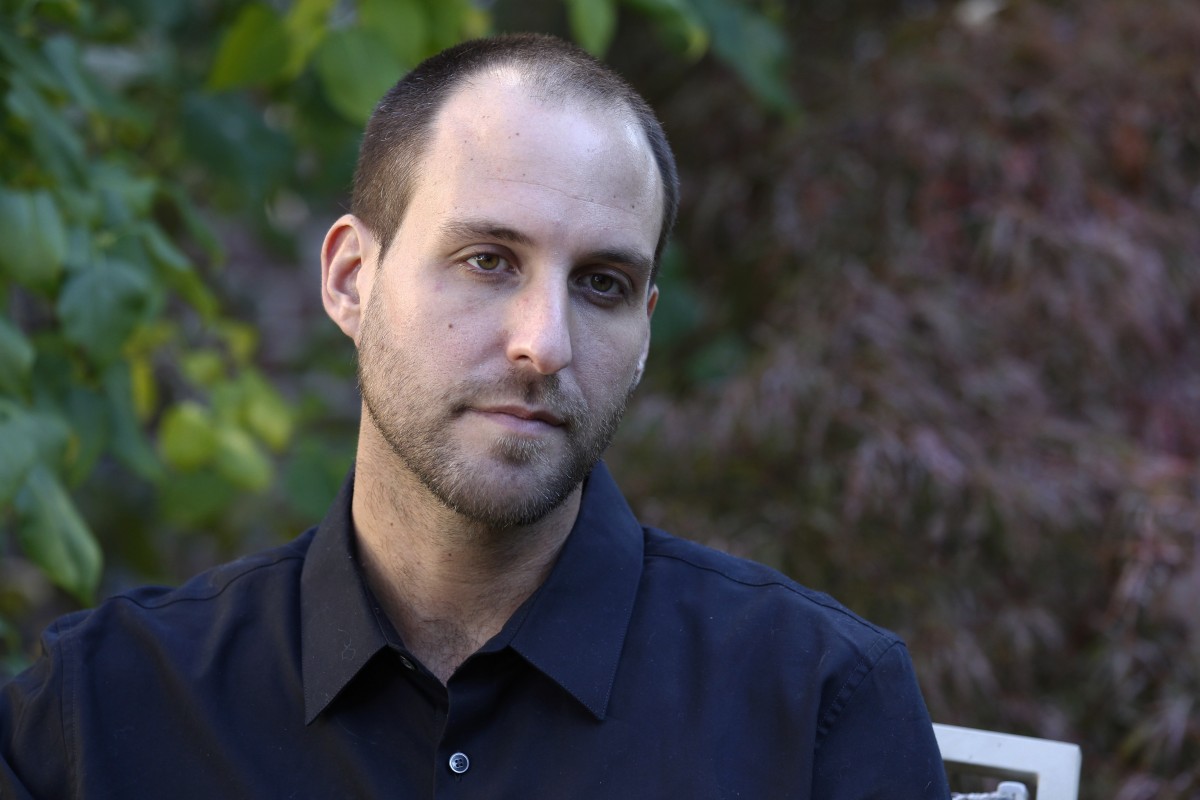Video journalist Ashoka Mukpo had been working with NBC in Liberia, filming the fight against Ebola. Then the unthinkable happened, he tested positive
 Ashoka Mukpo
Ashoka MukpoAshoka Mukpo knew he really was in trouble when he saw the people treating him in full protective suits and hoods.
The American video journalist is home now after recovering from Ebola he caught while working in the virus-ravaged west African country of Liberia. In an interview, he described the fear he felt when medical workers appeared at his bedside in the heavy duty gear needed to prevent the spread of the deadly infection.
"The only thing you can see is their eyes. And they’re dripping with chlorine," Mukpo said. "You just realise what a bad situation you’re in when your caregivers have to come in with such an incredible amount of protection."
Mukpo caught the virus after working for a month as a freelance cameraman for NBC and other media groups. He told of the terrible things he endured first with his diagnosis, then his treatment and at last his recovery at his Rhode Island home.
The 33-year-old Mukpo recalled taking his temperature, seeing it read 38.3 Celsius, and feeling "pure fear". Being diagnosed with Ebola, Mukpo said, forced him to confront the possibility of his own death, and made him understand the terror and isolation so many West Africans are going through.
Mukpo said he felt as if his body was "at war" with the virus: he was in pain and weak, he had a fever that went as high as 40C, it was hard to walk and eat, and he lost 16.8 kilograms in a week. Mukpo isn't sure how he got Ebola because he was careful while filming.
Mukpo was flown to the Nebraska Medical Centre in Omaha on October 6, where he was isolated in a bio-containment unit, given constant fluids and an experimental Ebola drug.
He is only one of a handful of people who have been treated for Ebola in the United States: One patient, Thomas Eric Duncan, died after traveling from Liberia to Dallas while other health care workers who have been infected have, like Mukpo, recovered.
Mukpo said it was difficult not to hold the hand of a loved one when he was so sick, but he added he’s not sure how much direct contact he would’ve wanted.
"I needed to go into my body and find a place of strength, and find a place of calm," he said.
Mukpo had no other choice but to find that strength, because there is little room for fear.
"I'm going to make it, I'm not going to give in to fear," he told himself. "I'm not going to give in to depression, embarrassment, I’m just going to live."
Receiving a blood transfusion from Ebola survivor Dr Kent Brantly, who was treated in Atlanta, was a turning point. The next day, Mukpo’s eyesight was clearer, his headache and fever had lessened, and he felt more in control of his body.
He was released from hospital on Wednesday and flew back to Rhode Island.
Mukpo felt compelled to go to Liberia because he had previously spent about two years there as a human rights advocate. "I saw these awful things happening to this country that I had a connection to," he said. "There was still some confusion about what the international response could be. I felt like 'OK, if I shoot film, I write, I’m going to help be part of the solution to this.' And I felt like that was worth the risk."
Despite his near brush with death, Mukpo would still consider returning to Liberia, under the right circumstances. For now he’s enjoying being somewhere safe and spending time with his family.
He's getting stronger every day and is grateful, blessed and lucky to be home. Still, he's acutely aware that most people battling the disease don’t have a team of doctors to save them.
He hopes that the US will never lose sight of the Ebola fight in West Africa," he said. "These are good people who are getting sick, these are real people who are getting sick, and they deserve the benefit of everything we can do to help them solve this crisis."
Many West Africans who survive Ebola lose a family member, or their entire family, to the disease, Mukpo said, and his heart goes out to them.
"This thing takes a piece from you," he said. "It can be very small, or it can be very big."
